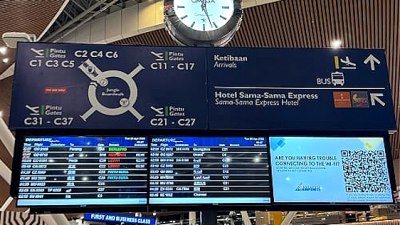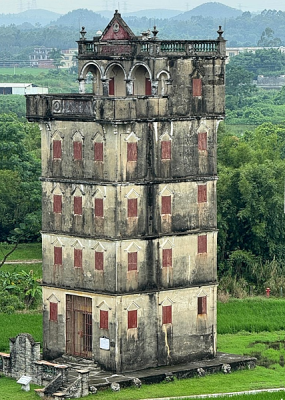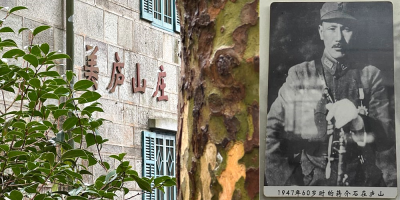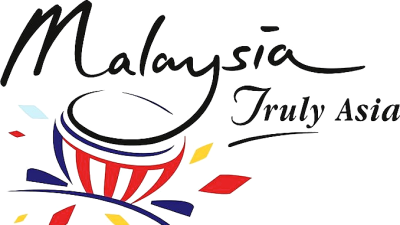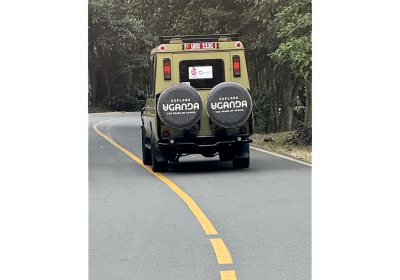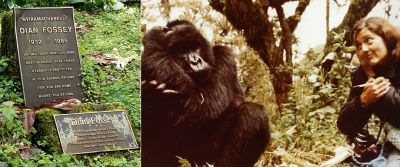The two-year Asian financial crisis ended in late 1999. In addition to sharp declines in the region’s currencies, a bigger setback came from the complications arising from the deep economic depression, in particular spiraling inflationary pressure.
Luckily, Apple Vacations managed to bank on this round of currency devaluation in the midst of the crisis to emerge as a rising star in the outbound travel sector. How did we do it? Of course one of the factors was because we were young and had nothing much to lose even if we failed.
But a more crucial factor has been the opportunities that came to us at the right time. Let me unfold the story of how we went about our first year under the “Apple” brand.
On April 17, 1998, a sunny afternoon, Chow and I were invited to fly aboard a small 70-seater airplane between Kuala Lumpur and Terengganu.
I don’t think you have heard of MAFIRA AIR, right? The passenger aircraft specifically transported people working in offshore oilfields in the east coast to and from KL on regular chartered flights. As a matter of fact, there are still plenty of such small aircraft in East Malaysia, but are rather rare in the peninsula. By the way, I was actually quite happy with the flight!
The economy was in really bad shape at that time, and I was venturing into this business at such a bad time. As I had made a lot of preparations for it, I had no plan to call it quits. I just had to force myself to go ahead against all the odds.
The most destructive part of the regional financial crisis was currency depreciation. We kept calculating how to seize the best timing.
Back then the local unit plunged from a dollar to RM2.50 in 1997, to the ghastly RM3.80-4.40 a year later. Even then the Mahathir administration was still reluctant to kowtow to the IMF, opting to peg the ringgit to the greenback at 3.80 instead (until 2005). This means the ringgit could no longer be traded freely in the international markets.
Being more inclined to work with IMF and other reasons, Anwar Ibrahim was sacked by his boss Mahathir on September 2, 1998. Anyway, the ringgit’s value plummeted by a whopping 50% against the dollar between 1997 and 98.
Talking about the Thai baht, do you still remember how it nosedived and how the Thai people took out their gold bars and jewelries and donated them to the government? A tycoon was even reduced to a hot dog seller in the streets of Bangkok. At that very critical moment, this gave the IMF a good excuse to go into Thailand (and South Korea for that matter), forcing the Thai government to reform the country’s financial system.
Charlie, the Thai GA agency boss we had been working very closely with gave us an idea. He said, “The entire retail, hotel and F&B industries here are like going for free. You only need to send the guests to Pattaya and we will take care of everything else: food, accommodation and sightseeing! Isn’t that wonderful?
Coincidentally, through a travel agency named SFERAS (now defunct), MAFIRA AIR was looking into the prospects of international chartered flight collaborations, offering part of their unused fleet to SFERAS for regular chartered flights.
Of course, the fare was very competitive compared to regular scheduled flights. SFERAS sold all their seats exclusively to Apple Vacations, and we then marketed the seats to our retail customers.
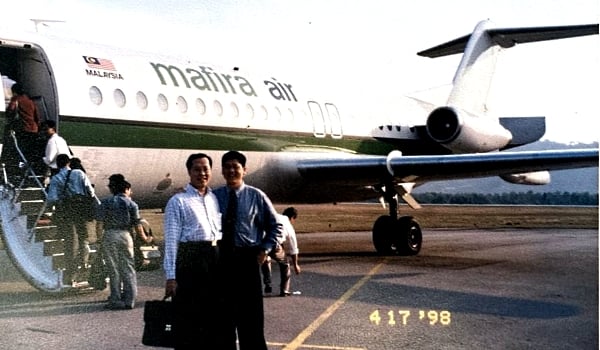
The business model worked this way: airline company – intermediary chartered flight company – exclusive retail travel agency, all parties bearing the cost and sharing the profits. But then why did Apple still need a middleman and why not deal directly with the airline company? It was because back then we were too young and too small, no track record to talk about, nor any experience in airline ticketing or adequate funds!
Notably, the two passenger aircraft belonging to AirAsia, then a subsidiary of Hicom, and the several airplanes belonging to Transmile Air Services, already started their cargo services. We still needed to go through a travel agency in order to have “regular chartered passenger flights” during those years, unlike today when an airline company can sell directly to customers through their websites.
While studying in Japan, I did notice that during the peak season, some major travel agencies might work with airline companies to ferry tourists on regular chartered flights to Taiwan, Saipan, Guam and other popular destinations. At the same time, they also split up the Group Inclusive Tour (GIT) tickets for retail sale to Free Independent Travelers (FIT).
Having been on a trial flight with MAFIRA, I immediately agreed to sign this unprecedented deal for chartered flights every four days direct to Pattaya’s Utapao airport (used to be a military airfield).
Notably, SPERAS was responsible for liaising with MAFIRA to ensure flight punctuality and fare standardization before selling the seats to Apple. They wouldn’t actually bother how I promoted or packaged my Thai tours or how much we sold the seats. So, I commissioned all GA stuff to Charlie, and off we went when all the deals were signed and in force!
Later I arranged to station my colleague Gwen Teng in Pattaya to handle all of Apple Vacations’ Thai matters. She was very busy but happy because everything in Thailand was so cheap!
I recently mentioned this thing to Gwen, and she still felt excited. Indeed, Thailand has not been known as a tourist paradise for nothing!
When the economy is bad and when one might lose his job any time, why do we still have plenty of people willing to dig into their pockets to travel?
What I know is that whatever crisis we are in, so long as the overall environment is still safe, people are willing to travel and relax, especially if we throw in some attractive perks and offers!
More in the Isshōkenmei series
(Lee San is Founder and Group Executive Chairman of Apple Vacations. He has traveled to 132 countries, six continents, and enjoys sharing his travel stories and insights. He has also authored five books.)
ADVERTISEMENT
ADVERTISEMENT






